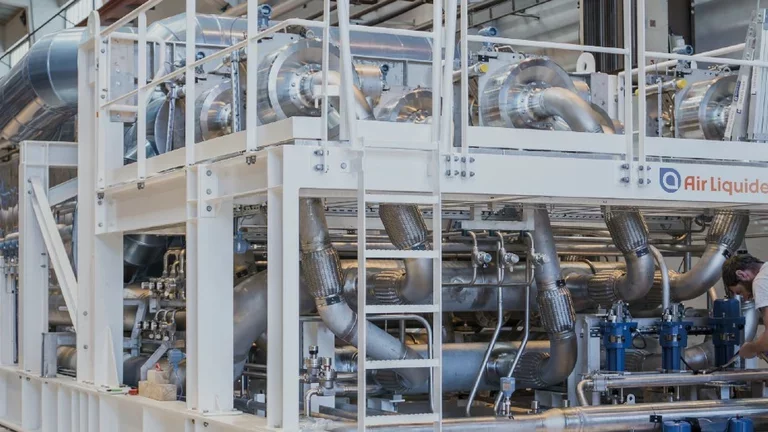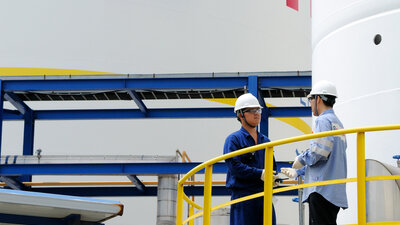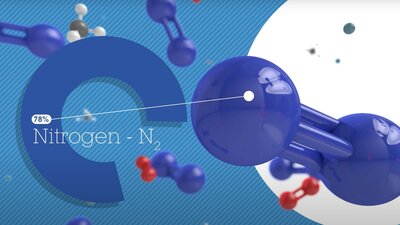Extreme cryogenics, the science of ultra-low temperatures (close to absolute zero, or -273,14°C), has been an Air Liquide expertise for many years. Essential for cooling and liquefying many gases, extreme cryogenics is key in many areas, including highly innovative ones.
For more than 50 years, the Group has been developing innovative cryogenic technologies for space exploration. But these technologies also serve a diverse range of industries on planet Earth, from industrial manufacturing and transportation to scientific research.
Optimising the transport of liquefied natural gas (LNG) or biomethane
One particularly successful application is Turbo-Brayton, originally developed to keep biological samples cold on the International Space Station. In orbit since 2006 without any maintenance, this solution is increasingly popular among shipping companies transporting liquefied natural gas (LNG) between producing and consuming countries.
Onboard large LNG tankers, it prevents “boil-off” during transport when the gas, cold in its liquid state (-160°C), warms up and partially evaporates (up to 6 metric tons per hour). To limit the financial losses, shippers are increasingly requiring shipowners to fit their ships with preventative systems. The efficiency and reliability of the Turbo-Brayton solution also opens the door to renewable energy applications. For example, it can be used to liquefy biogas from recovery plants, which produce methane from household, agricultural and industrial waste. In its liquid form, the gas can then be easily transported to its point of use, such as refueling stations for natural gas vehicles. These initiatives have already been introduced in the Nordic countries in Europe.
Ultra-low temperatures for new heights in research
The Group will be supporting large-scale research experiments, thanks to a new agreement with the Hefei Institutes of Physical Science and the Chinese Academy of Science (HFIPS) to jointly develop and manufacture helium refrigeration systems in China.
Thanks to its technological expertise, Air Liquide is constantly innovating and adapting its solutions to meet the needs of its customers, while opening the path to new markets. This expertise perfectly positions the Group in the race for future growth.
This article is an extract from the 2021 Shareholders’ guide.



